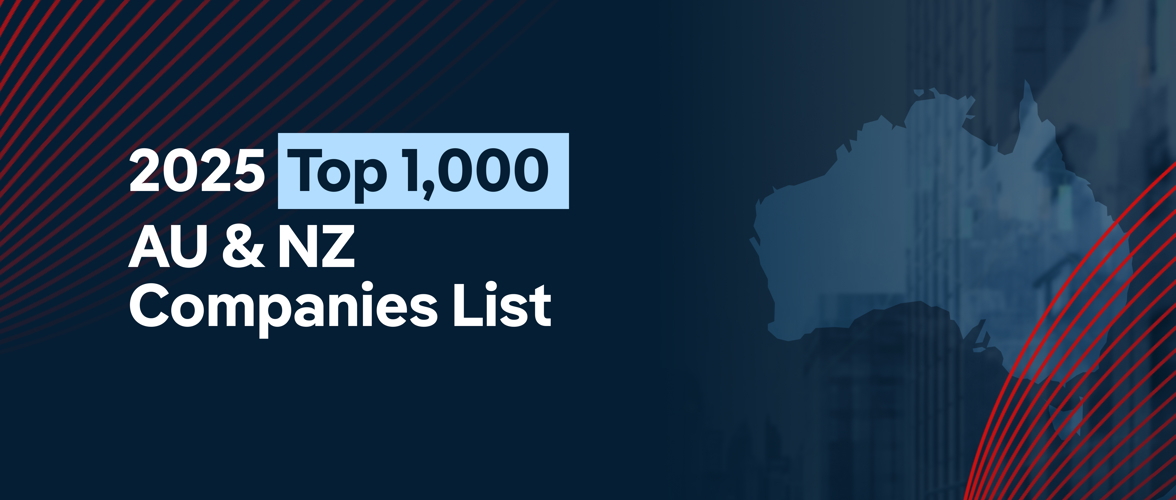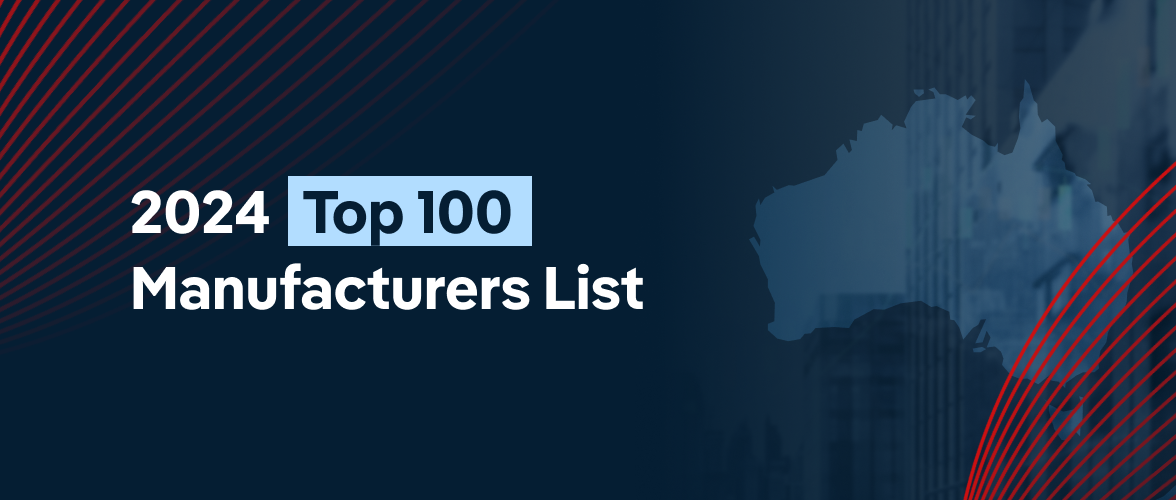Key Takeaways
- Sims Limited is focusing on IT hardware refurbishments amid global semiconductor shortage
- Interest in electric vehicles is on the rise for fleet managers, but supply isn’t keeping up
- GrainCorp has reaped the benefits of an impressive harvest despite east coast flooding, with strong export demand set to continue
With 2023 underway, we’re sharing five companies to keep an eye on this year. Whether they’re looking ahead to impressive revenue growth, ongoing losses, upcoming legislation changes or booming industry demand, these five players are sure to have an eventful year ahead.
1. Sims Limited

Sims Limited are a major player in the Australian Scrap Metal Recycling industry and the Waste Remediation and Materials Recovery Services industry. The company posted 161.3% year-on-year growth in Net Profit After Tax (NPAT) in 2021-22, making them one to watch this year.
Sims specialises in processing both ferrous and non-ferrous metals, in addition to providing municipal services. Despite recovering from a pandemic-induced slump, the company has also faced a number of challenges since early 2022. Inflation has curbed demand and ferrous metal prices have fallen from the high point of March 2022, reducing the value of Sims outputs.
Despite these hurdles, strong financial performance led to substantial dividend growth over the past year, as Sims is seen as playing a significant role in promoting sustainability and a greener economy. This reputation, in a business environment that is increasingly taking ESG factors into account, bodes well for Sims Limited.

In 2022, Sims spent $93 million to acquire land in the Brisbane port, in line with its strategy to ensure operations are close to deepwater ports for easy access to international shipping. The company has outlined plans to develop an onsite recycling plant that would allow its metal products to be shipped worldwide and meet increasing customer demand.
Sims Lifecycle Services, a division of the company, also provides IT asset disposition (ITAD), which is the process required to manage data destruction and IT hardware recycling and refurbishment. The relatively new division processed 2.7 million units of cloud computing hardware in 2022, with expectations of processing 8.5 million units by 2025. Hardware refurbishments are in demand, as a global shortage of semiconductors is encouraging repurposing of hardware materials, while also reducing the volume of leftover shredded metal ending up in landfill.
2. SG Fleet Group Limited

SG Fleet recorded 84.0% revenue growth and a 39.0% increase in NPAT in 2022, thanks to its vehicle fleet management, leasing, and short-term hire services in Australia. The company’s strong asset growth was largely thanks to its acquisition of fleet manager LeasePlan's Australian business in 2021, which allowed for consolidation and better offers for customers.
The company manages around 250,000 vehicles, with electric vehicle (EV) inquiries making up 25% of all requests, reflecting growing demand for EV leasing deals. However, SG Fleet has stated that ongoing shortfalls in the supply of EVs in Australia would need to improve to meet increased demand.
New legislation looks promising for vehicle fleet and lease businesses that provide EVs, with low-emission cars now exempt from fringe benefits tax (FBT). Demand from businesses looking to switch their car fleets to EVs is set to continue growing on the back of these changes. The exemptions have also increased the appeal of novated leases, which are arrangements where customers can finance vehicles with pre-tax repayments under a salary sacrifice arrangement. Consumers benefit from the arrangement as novated leases reduce taxable income, while vehicle expenses can also be packaged in the repayments to be covered by the employer.
Legislation changes, a greater focus on ESG factors, high fuel costs and the company’s strong market share in the Fleet Vehicle Leasing industry make SG Fleet worth keeping an eye on in 2023.
3. GrainCorp Limited

GrainCorp specialises in storing, handling and processing grains and oilseeds such as wheat, barley, canola and sorghum. The company recorded an annualised 10.9% growth in revenue over the five years through September 2022. GrainCorp delivered an NPAT of $380.4 million last year despite the volatility in global markets, exporting 9.2 million tonnes of grain from its east coast ports. The company's grain handling also increased from 34.4 million tonnes to 41.1 million tonnes this year, due to a rise in global demand for cooking oils.
Flooding along the NSW east coast raised concerns about crop yields and delayed harvests due to damaged railway lines. Despite heavy rainfall, port operations were able to continue at near full capacity to meet growing demand for Australian grain, as trade disruptions due to the Russia-Ukraine conflict tightened supply. GrainCorp’s growth can largely be attributed to excellent planting conditions provided by La Niña weather patterns on Australia’s east coast.
The company’s export outlook is strong as international customers seek to secure other sources of supply amid global food security concerns. Balancing strong growth and promising export potential against the increasing risk of unfavourable weather events, GrainCorp has well and truly earned its spot on our list of companies to watch in 2023.
4. Firstmac Limited

Brisbane-based non-bank lender Firstmac achieved strong revenue growth in 2022 by offering competitive financial products. The company currently manages $16.0 billion in mortgages alongside $300.0 million in cash investments. Self-funded through the issuance of mortgage-backed securities since 2003, Firstmac’s performance highlights its position as a key player in Australia's non-bank lending space.

Despite a 17% increase in its loan book in the 12 months to June 2022, Firstmac has struggled against attractive pricing offers from competitors and lost established customers to the big four banks. For example, ANZ and Westpac have been offering up to $4,000 cashback to customers for moving their existing loans to the banks in a bid to grow their own loan books in a highly competitive market.
Rising interest rates and increased household debt in 2023 pose concerns for the potential impact on variable rate borrowers. However, Firstmac’s loans in arrears are currently just over 0.2% of its portfolio and the CFO, James Austin, expects a peak of 1.3%, stating that it will not cause significant difficulty.
Firstmac currently has approximately $600 million in car loans on its books, and has pushed for growth in its automotive finance business. Firstmac offers a 0.7% discount on rates backed by the Clean Energy Finance Corporation for buyers of electric vehicles. The lender also plans to issue sustainable auto bonds in the future, which will be secured against electric vehicles exclusively, as they anticipate growing interest from institutional investors.
These strategies, alongside the company’s strong performance and the threats it faces from larger financial players and economic challenges, make Firstmac one to look out for in the coming year.
5. Zip Co Limited

Buy Now Pay Later (BNPL) group Zip provides point-of-sale credit to customers both online and in store, allowing them to spread their purchase costs over time. Despite strong revenue growth, the company (and the BNPL industry in Australia on the whole) have a less-than-desirable track record in terms of profitability.
For example, Zip experienced a net loss of over $1 billion in 2022, while the BNPL industry was one of Australia’s four least profitable industries in 2020-21. Amid mounting pressures, Zip also exited the Singapore market and shut down its business lending unit in 2022.
Proposed regulations may require BNPL providers to conduct affordability tests on their customers, as almost 25% of BNPL users have reported financial stress from their obligations. The regulations will likely also require that BNPL providers hold an Australian credit license.
The focus of future regulation will be on protecting customers and ensuring that providers are meeting their responsible lending obligations. Despite the challenges, Zip Co's chair, Diane Smith-Gander, believes that BNPL products will become more relevant in challenging economic conditions and that regulation will enhance consumer confidence.
With highly publicised—and widely anticipated—legislation on the horizon, and several years of significant operating losses on the books, Zip is a company to keep an eye on in 2023.
Final Word
Over the course of this list we've unpacked a few of the factors that suggest these companies are going to have an eventful 2023, from shifting legislative environments to a greater focus on ESG factors and the growing possibility of severe weather events to economic challenges.
While the companies above vary widely in their performance, operating sector and outlook, they all have one thing in common: they’re going to be interesting players to keep an eye on in the coming year.
Sign up to our newsletter and follow IBISWorld on LinkedIn to keep up to date with our latest insights and market research guides.
IBISWorld reports used to develop this release:
Waste Remediation and Materials Recovery Services in Australia
Scrap Metal Recycling in Australia
Fleet Vehicle Leasing in Australia
Cereal Grain Wholesaling in Australia
Edible Oils Manufacturing in Australia
Cooking Oil and Margarine Manufacturing in Australia
Non-Depository Financing in Australia









